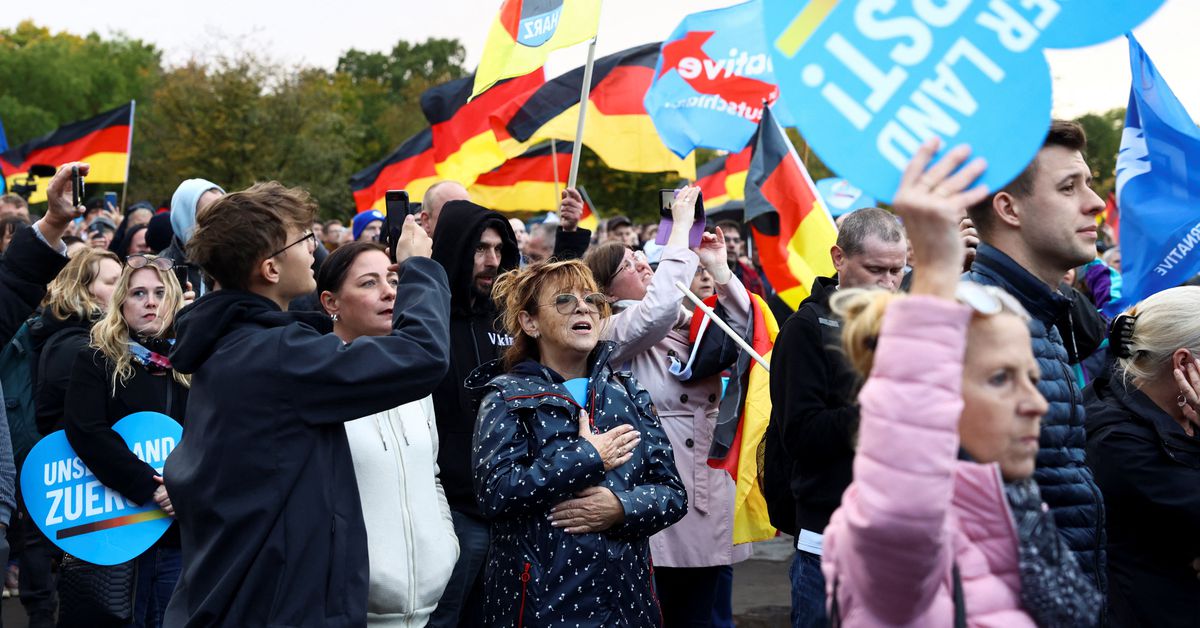BERLIN, June 25 (Reuters) - A far-right Alternative for Germany (AfD) candidate won a vote on Sunday to become a district leader in Europe’s biggest economy for the first time, a breakthrough for the party which has hit record highs in national polls.
The 10-year old AfD, with which Germany’s mainstream parties officially refuse to cooperate due to its radical views, won a run-off vote in the Sonneberg district in the eastern state of Thuringia with its candidate garnering 52.8% of the vote.
It is the latest success for the party which is riding a wave of popular discontent with Social Democrat Chancellor Olaf Scholz’s awkward coalition with the Greens and Free Democrats (FDP) which is dogged by infighting over policy and the budget.
Polling at 19%-20%, behind the opposition conservatives, the AfD is tapping into voter fears about recession, migration and the green transition, say analysts. It even plans to nominate a chancellor candidate in the 2025 federal election.
While far-right parties have gained ground around Europe, the strength of the AfD is particularly sensitive in Germany due to the country’s Nazi past.
The President of the Central Council of Jews in Germany, Josef Schuster, expressed deep shock.
“This is a watershed that this country’s democratic political forces cannot simply accept,” he told RND media.
Particularly strong in the former Communist East, polls suggest the party may win three eastern state votes next year.
A clear victory for the AfD’s Robert Sesselmann in the district, which has a population of only around 56,000 people, sends a signal to Berlin, say analysts, especially as all other parties in Sonneberg joined forces in a front against him.
Sesselmann was forced into a run-off against a conservative candidate after a vote two weeks ago. The conservative candidate won 47.2% on Sunday.
The party opposes economic sanctions against Moscow over the Ukraine war and disputes that human activity is a cause of climate change.
The domestic intelligence agency said this month that far-right extremism posed the biggest threat to democracy in Germany and warned voters about backing the AfD.
Formed a decade ago as an anti-euro party, its popularity surged after the 2015 migrant crisis and it entered parliament in 2017, becoming the official opposition. Reporting by Madeline Chambers; Editing by Chizu Nomiyama



AfD votes are like 2/3rd protest votes. That is, people who say “I don’t like the AfD but it annoys the other parties so let’s go for it”.
I understand the sentiment but motherfuckers can’t you vote for Die Partei instead or something. They obviously messed up, time to resurrect the APPD.
As to “counter-Nazi measures falling apart”: All other parties are fire walling the AfD. Meaning that we’d rather see CDU and Die Linke in coalition somewhere than an AfD mayor.